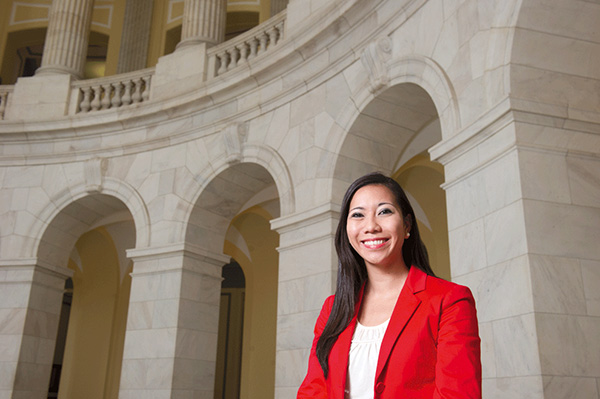
The COVID-19 pandemic laid bare the gaps and limitations of our country’s public health infrastructure and has also drawn attention to the racial and social injustice, and the inequity woven into our social fabric. For Asian American, Native Hawaiian, and Pacific Islander (AA and NHPI) communities, it has also been a challenging time due to increasing levels of anti-Asian hate and violence.
President Joe Biden established the White House Initiative on Asian Americans, Native Hawaiians, and Pacific Islanders (WHIAANHPI) within the U.S. Department of Health and Human Services (HHS) and appointed Krystal Ka’ai as its executive director in 2021. As members of the AA and NHPI Engagement Committee with the NIH’s Office of Equity, Diversity, and Inclusion (EDI), we are excited by the WHIAANHPI’s intention to address multiple issues that may impact AA and NHPI communities and employees in the federal workforce.
Recently, the AA and NHPI Engagement Committee had an opportunity to chat with Krystal. In our conversation, it was evident that her background and experiences have imparted an understanding and drive to address AA and NHPI issues.
Krystal was born and raised in Hawaii, a state where most of the population identify as AA and NHPI.1 Throughout her early years, she was used to seeing people who looked like her in influential positions and never questioned her own racial background. It was not until she attended a small private college in Pennsylvania with a predominantly white student body that she realized how unique her upbringing was, and how her experience of being one of the few AA and NHPI students in her classrooms reflected the reality that many AA and NHPIs in the continental U.S. experience.
While in college, Krystal participated in an internship in Washington, D.C., for Native American students and found herself to be the only Native Hawaiian in the program. This gave her the opportunity to meet other indigenous communities and served as her first exposure to federal advocacy and policy. Her career path, leading to her current role with WHIAANHPI, has been inspired by the ability to give AA and NHPI communities a voice and shape more diverse and inclusive policies with direct impact.
Krystal’s work involves various issues relevant to AA and NHPIs. One key issue is the fact that the terminology of “AA and NHPI” is an umbrella phrase for people who represent over 20 origin groups and speak dozens of different languages.2, 3 Through her collective experiences, Krystal learned about and appreciated the different cultures, languages, and contributions of AA and NHPI communities, and cultivated the context needed to create policies and interventions that serve the diverse needs of these individual communities rather than viewing them as a monolith. Oftentimes, AA and NHPIs are viewed as one large group, but this often masks disparities and inequities that exist among specific subgroups, including wage gaps, health disparities, and educational inequities.
Thus, one component of Krystal’s efforts in the WHIAANHPI includes data disaggregation, underscoring how access to more comprehensive data could address disparities that may exist between various ethnic subgroups. A data-driven approach would highlight existing challenges, target resources where they are needed most, and ensure that those resources are accessible to AA and NHPI populations.
Other efforts – including health equity, education equity, and addressing anti-Asian hate and xenophobia – require the cooperation of multiple people and organizations. Krystal intends for the Initiative to inspire intentional outreach and engagement with AA and NHPI populations at NIH and beyond. This extends to matters such as workforce diversity; there is a misconception that AA and NHPI communities are overrepresented when the leadership pathway and representation at senior levels of government actually lack representation (also impacting specific subgroups like Native Hawaiian, Pacific Islander, and Southeast Asian communities). Krystal also looks forward to seeing how NIH can serve as a crucial partner to the WHIAANHPI, particularly through employee resource groups.
As we in the EDI AA and NHPI Engagement Committee identify opportunities and challenges associated with an inclusive environment, such as the underrepresentation of AA and NHPIs at leadership levels and in other decision-making committees, it is inspiring to know that Krystal Ka’ai has emerged as a determined and passionate partner to join us in engaging the AA and NHPI workforce.
Sources
Do you have a story idea for us? Do you want to submit a guest blog? If it's about equity, diversity, or inclusion, please submit to edi.stories@nih.gov.
For news, updates, and videos, subscribe or follow EDI on: Twitter, Instagram, Blog, YouTube.






